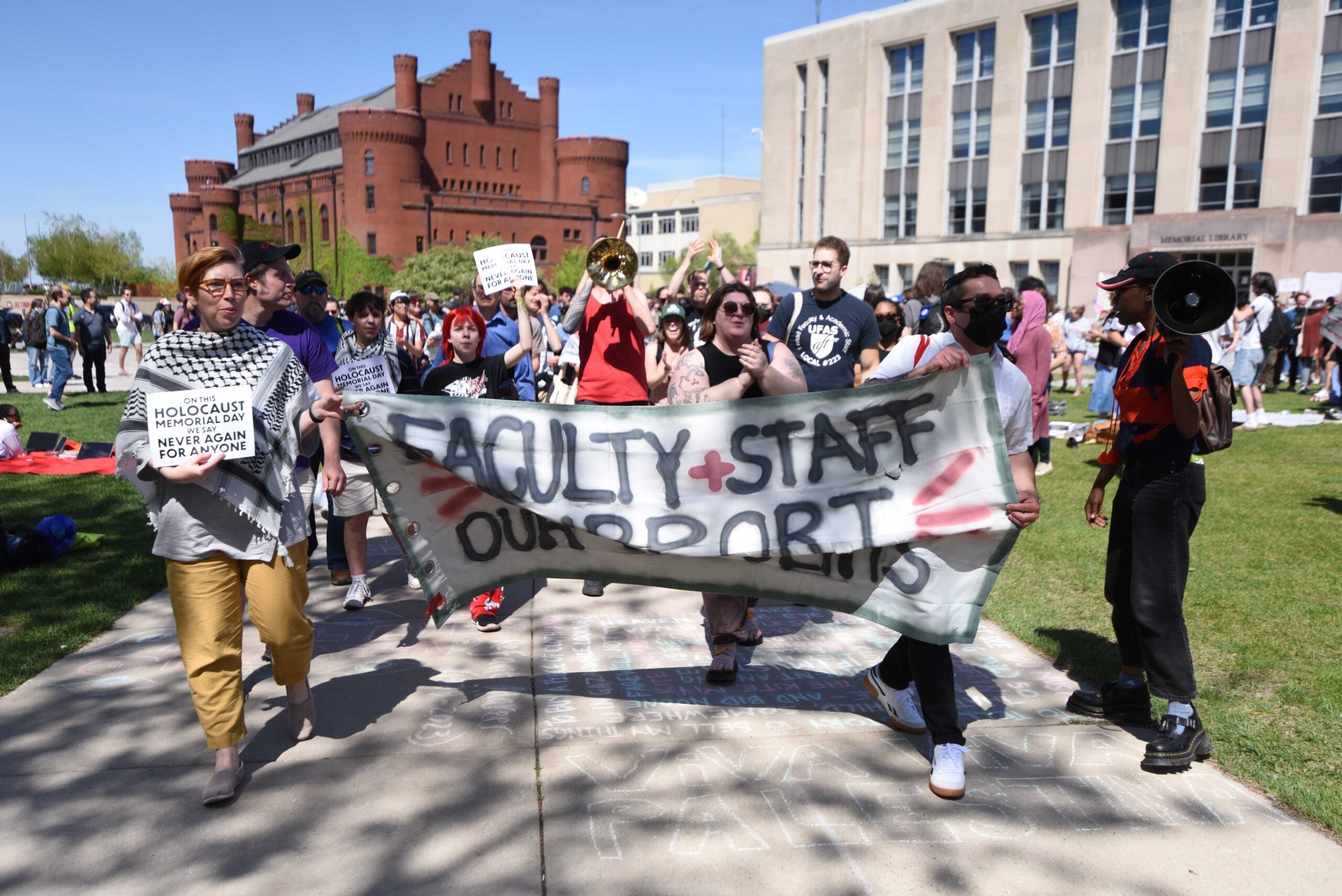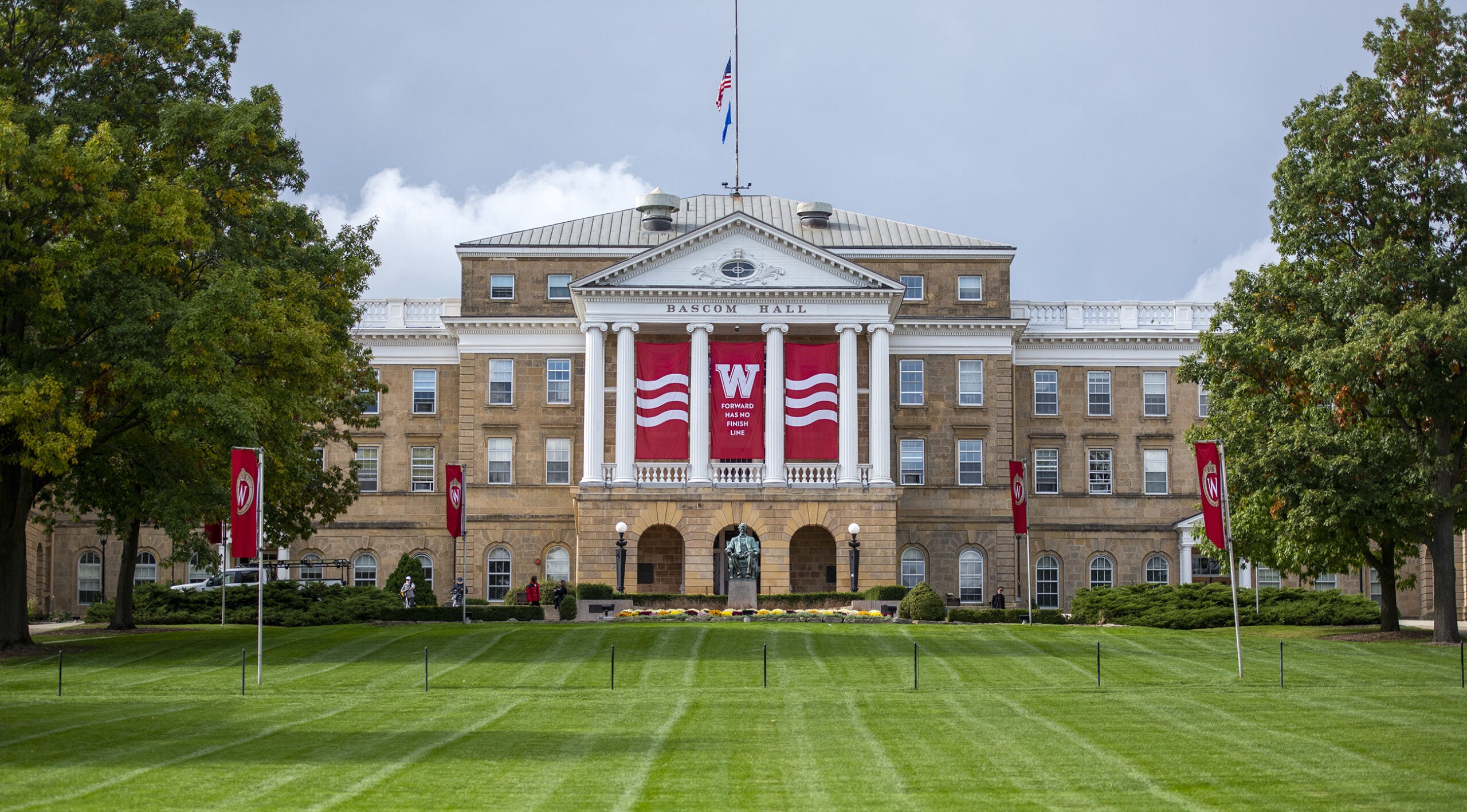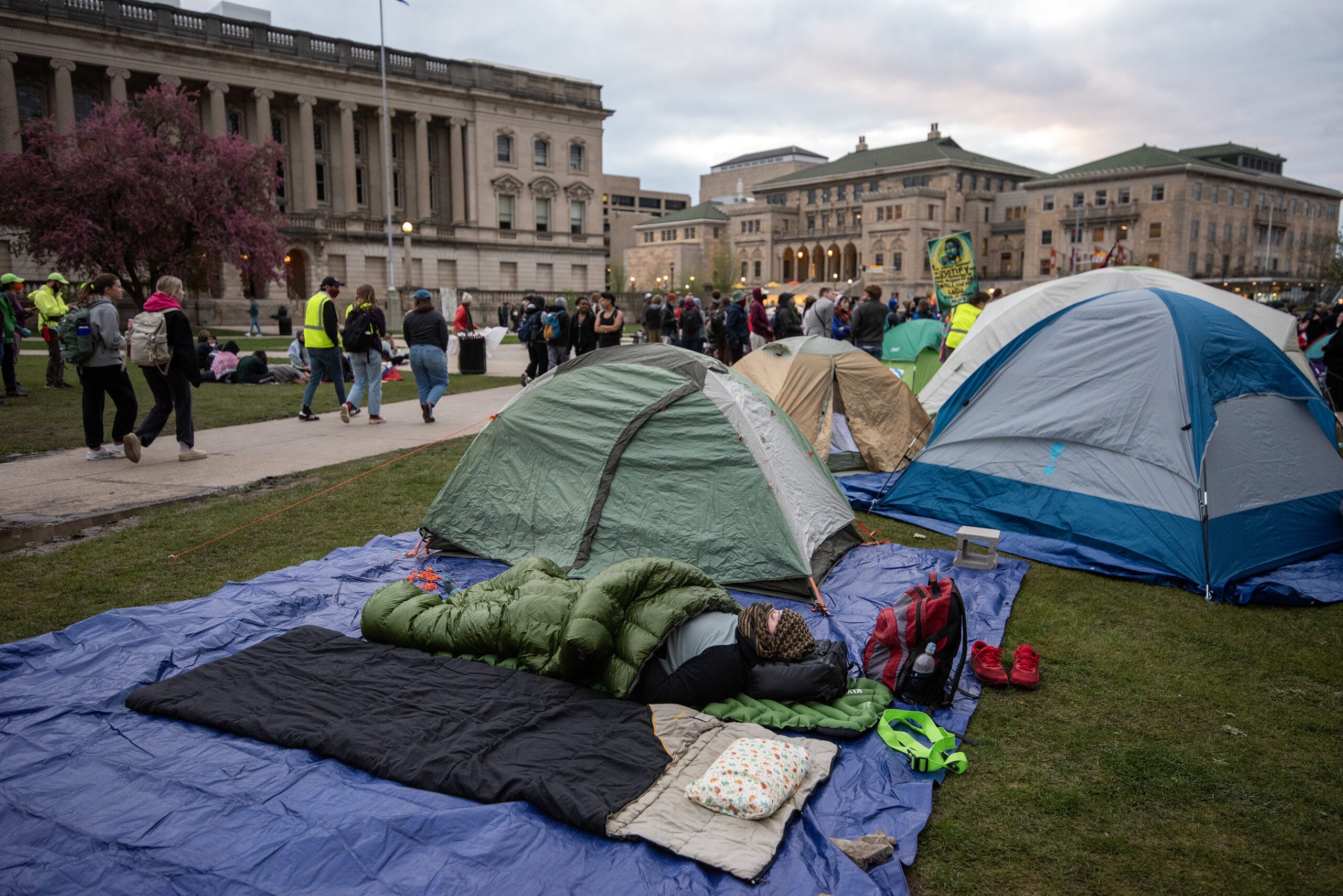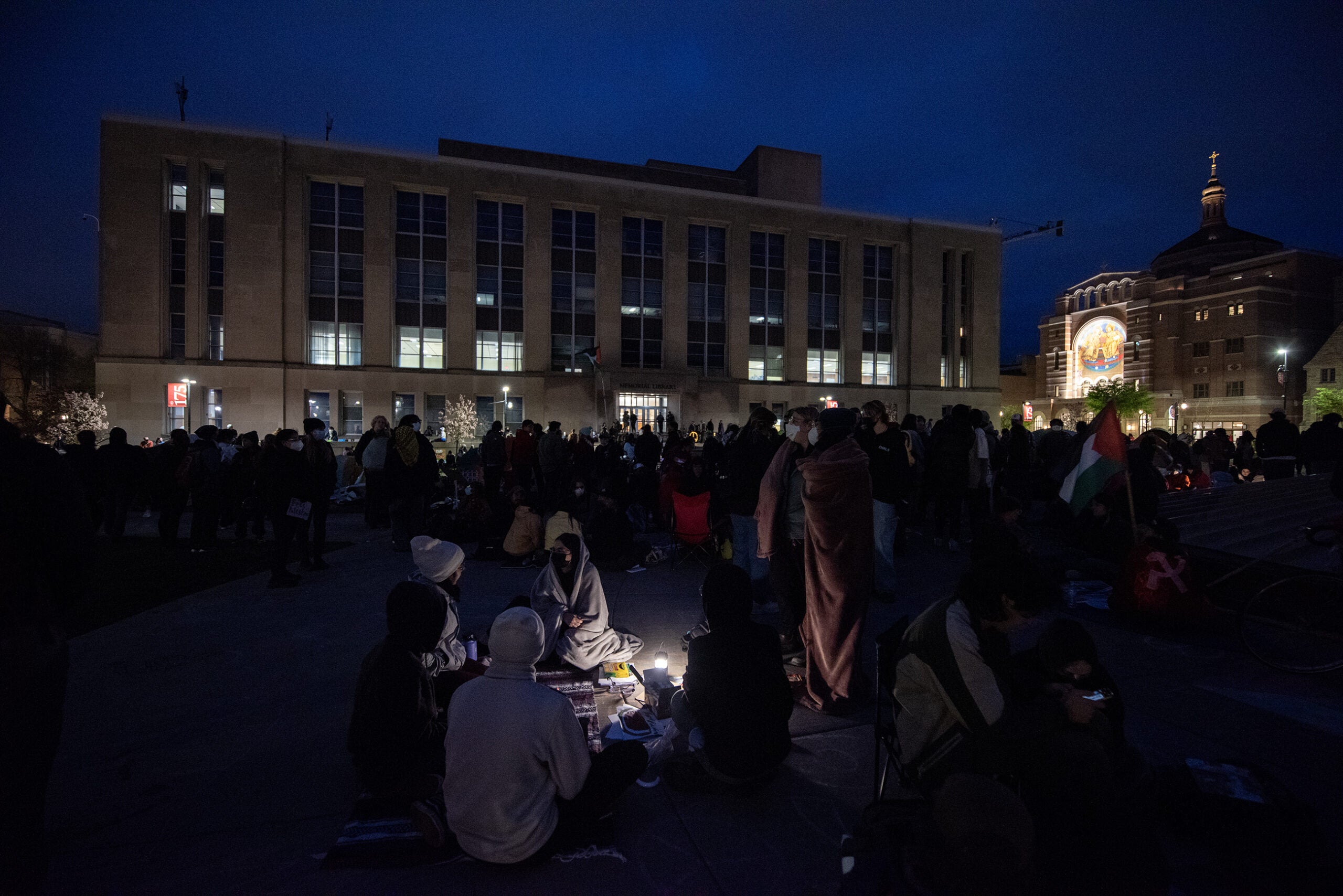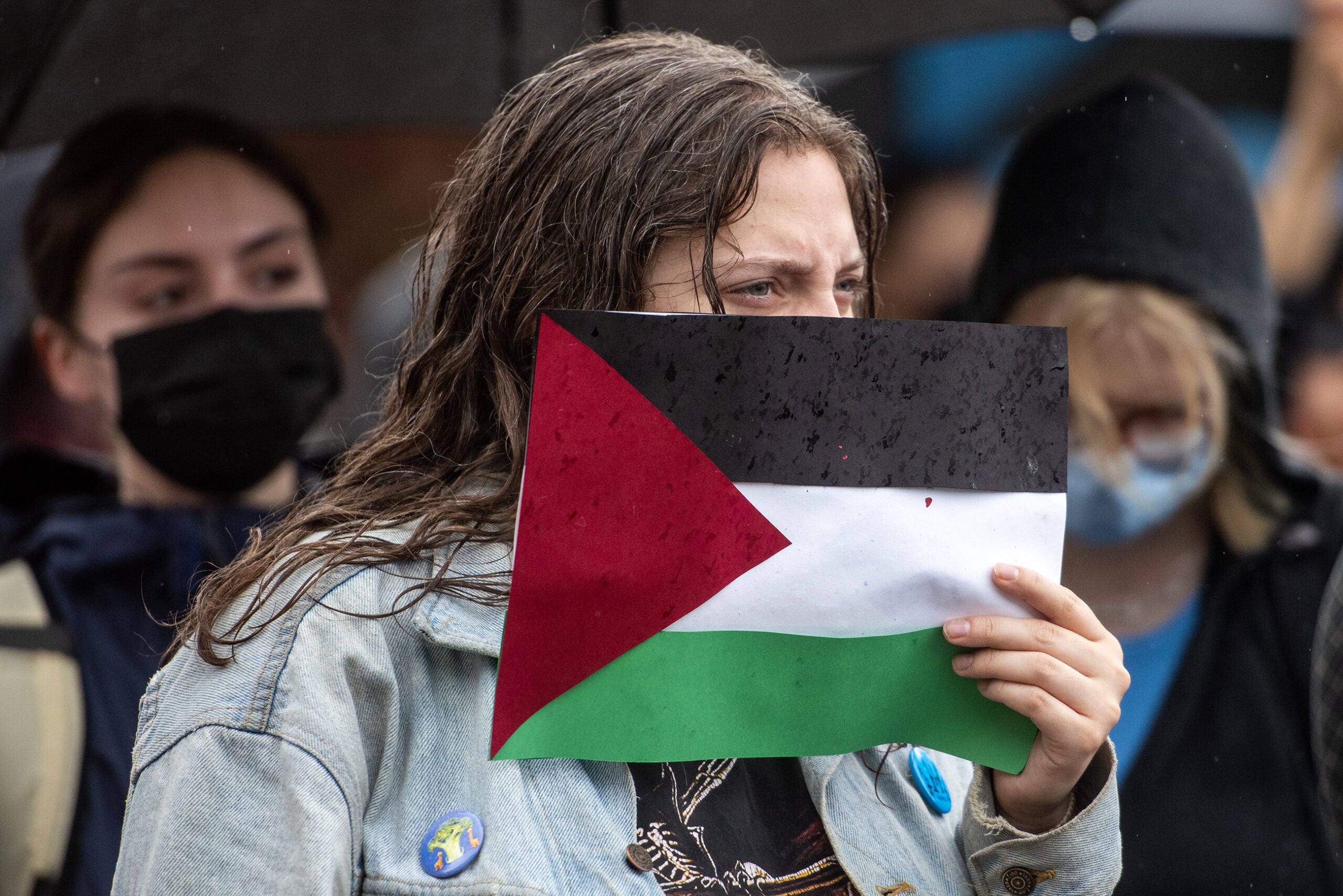Two graduate students at the University of Wisconsin-Madison are facing campus disciplinary hearings linked to an op-ed they authored in support of the student pro-Palestine encampment movement this spring. At least five other open hearings will take place over the next month.
In all, several dozen people have been investigated for nonacademic misconduct tied to the protests, and some have requested public hearings — a process that could eventually lead to appeals before the statewide Board of Regents.
Vignesh Ramachandran and Dahlia Saba are receiving hearings this week for alleged violation of student policy tied in part to an opinion piece they wrote for Madison’s The Capital Times newspaper.
News with a little more humanity
WPR’s “Wisconsin Today” newsletter keeps you connected to the state you love without feeling overwhelmed. No paywall. No agenda. No corporate filter.
About 30 supporters attended Ramachandran’s hearing before a committee composed of faculty, staff and a students on Monday. Many in the audience wore keffiyehs, a headdress often used as a symbol of support for the Palestinian cause.
Over the course of about two-and-a-half hours, investigating officer Ryan Podolak, a director with the Office of Student Conduct and Community Standards, presented findings against Ramachandran. Podolak said Ramachandran violated student policies about safety, making knowingly false statements to the university and barring camping and picnicking on campus.
“You can see what I’ve pulled, direct quotes from the article where the student is communicating they … engaged in behavior that is a policy violation,” Podolak said.
He argued the two claimed ownership of the actions of the encampment protests which took place on Library Mall at the flagship university’s campus from April 29 to May 10.
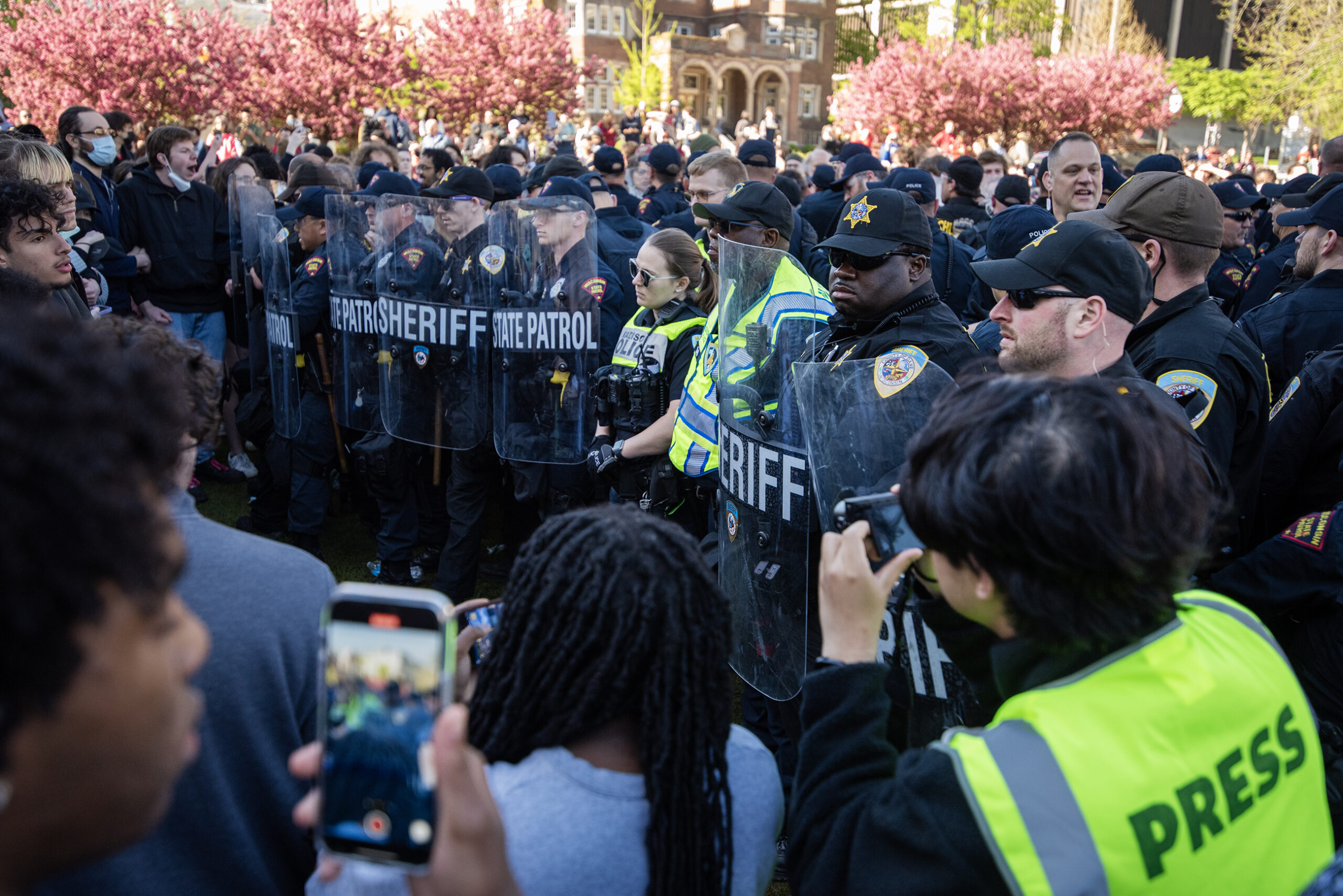
Ramachandran, appearing with an attorney from the National Lawyers’ Guild, denied each of the claims. He argued the substance of the op-ed refers to support for the student movement, and that he did not camp overnight or materially assist the protests.
More broadly, Ramachandran and Saba — who both spoke with media, including WPR, during the encampment protests — say that being targeted for writing an op-ed violates their First Amendment protections.
“If they’re finding me responsible for these (university) code violations on the sole evidence of an op-ed that I wrote — what I thought was protected speech, what I thought a public university like UW-Madison was legally liable to uphold — I am worried of future writing that I do as a graduate student,” Ramachandran told WPR on Monday.
If their sanctions are upheld, the two would receive a formal rebuke, which Podolak said is the “least punitive” consequence they can face. Saba’s hearing will take place on Friday.
In a letter to campus officials, Palestine Legal, an organization supporting students who face disciplinary action because of pro-Palestinian activism, argued the case would have a “chilling effect on rights to free speech and association when it comes to advocating for Palestine or critiquing the university.”
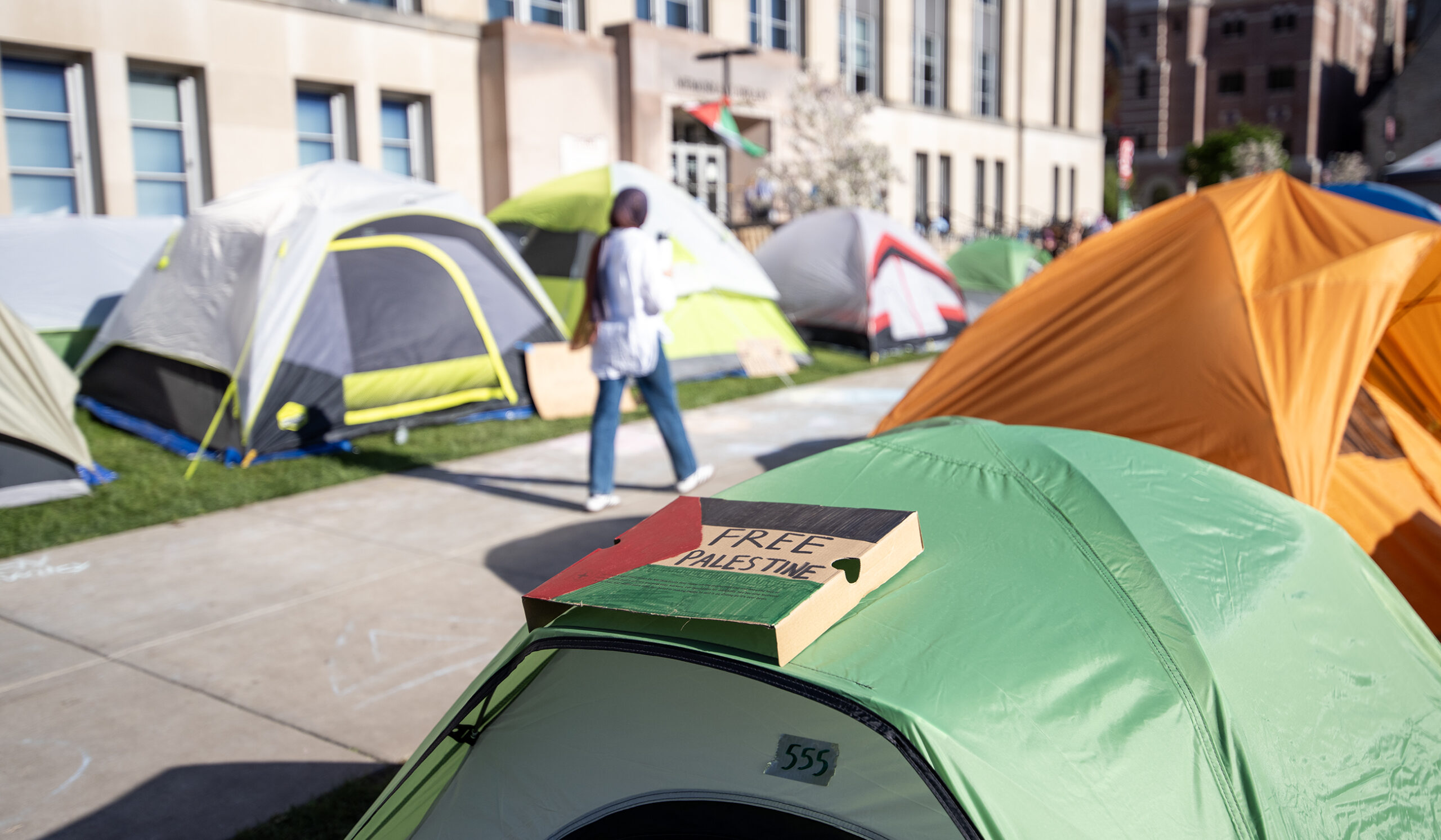
In all, at least 30 students have been investigated for nonacademic misconduct, according to student reporting from The Daily Cardinal. John Lucas, a spokesperson for UW-Madison, did not respond to WPR’s requests to confirm that number.
“We care deeply about the well-being of our students and their right to free expression. Specific details of student conduct cases are generally protected by federal privacy laws,” Lucas said in a statement.
Nationwide, college students have faced a range of disciplinary action tied to pro-Palestinian activism, and especially the encampment movement, in which activists pitched tents and occupied space on dozens of college campuses.
Thousands of students were arrested during the weeks-long movement, including more than 30 at UW-Madison. In the months since, some have been barred from their campuses, suspended or expelled from school, or seen their degrees held in limbo.
Wisconsin Public Radio, © Copyright 2026, Board of Regents of the University of Wisconsin System and Wisconsin Educational Communications Board.

